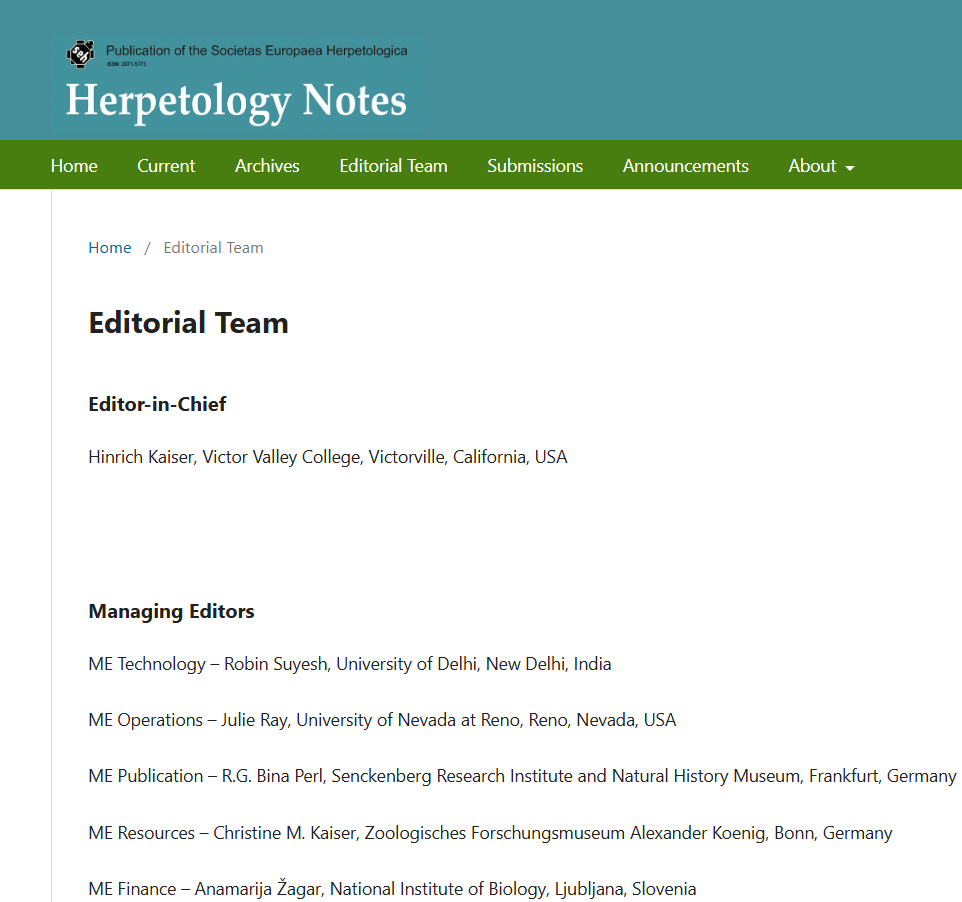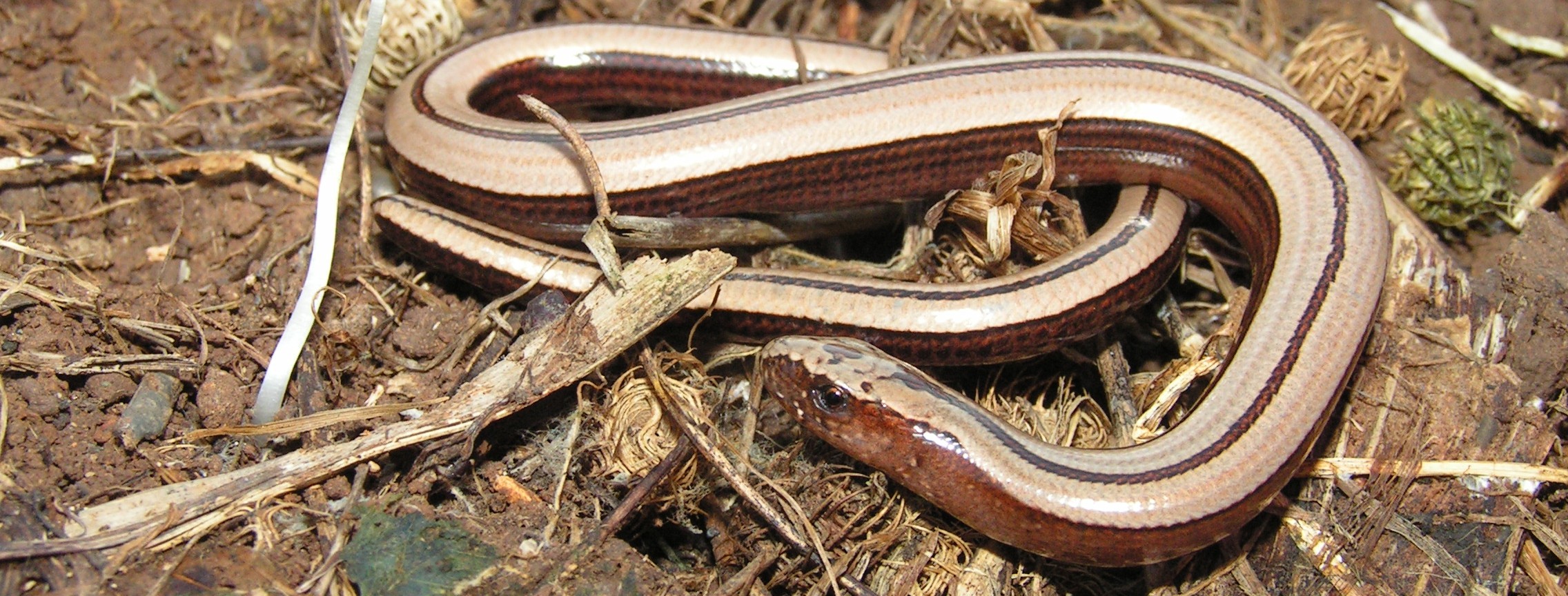Herpetology Notes is an online-only, open-access journal published by the Societas Europaea Herpetologica (SEH). The journal provides a rapid and accessible platform for the publication of high-quality herpetological research, with a particular focus on natural history and distributional data.
All manuscripts are processed, peer-reviewed, edited, and professionally typeset by an international editorial team. Accepted articles are published online as PDF files as soon as the final layout is approved by the authors. The journal is hosted on the SEH web server and managed through the Biotaxa manuscript processing system.
Journal Features & Publication Model
-
Online-only and fully open-access journal
-
Rapid publication following acceptance and author approval
-
Articles published as PDF files
-
One annual volume with consecutive page numbering
-
Indexed in Scopus and Google Scholar
-
All manuscripts must be submitted and published in English
-
ISSN: 2071-5773
Current articles are freely available for download on the Herpetology Notes website, with all previous volumes accessible through the journal archive.

Open Access Fees
The standard open-access publication fee is €100 for articles of five or fewer printed pages. Fees for longer manuscripts, complex tables, and colour-intensive content are detailed in the Author Guidelines. Reduced publication fees are available for SEH members.
Authors are strongly encouraged to consult recent articles published in Herpetology Notes to ensure compliance with formatting and style requirements prior to submission.
Scope of the Journal
The primary aim of Herpetology Notes is to provide a global forum for the rapid publication of descriptive herpetological research that might otherwise remain unpublished or confined to grey literature.
The journal welcomes submissions on:
-
Natural history observations
-
Species distribution records
-
Descriptive studies of morphology
-
Genetic variability, including DNA barcoding
-
Marker development (e.g. microsatellite loci)
As an online-only journal, Herpetology Notes does not accept manuscripts that include formal taxonomic acts, such as descriptions of new species. Some contributions may also be suitable for publication as short notes in Amphibia-Reptilia, depending on scope and content.

Editorial Team
Editor-in-Chief
Hinrich Kaiser
Victor Valley College, Victorville, California, USA
Research interests include systematics and conservation of South and Southeast Asian amphibians and reptiles, with a strong focus on maintaining scientific integrity in herpetological taxonomy.
Managing Editors
Managing Editor for Finances
Anamarija Žagar
National Institute of Biology, Ljubljana, Slovenia
Managing Editor for Operations
Julie Ray
University of Nevada, Reno, Nevada, USA
Managing Editor for Technology
Robin Suyesh
University of Delhi, New Delhi, India
Managing Editor for Publication
Bina Perl
Senckenberg Research Institute and Natural History Museum, Frankfurt, Germany
Assistant Managing Editor for Resources
Christine M. Kaiser
Museum Koenig, Leibniz Institute for the Analysis of Biodiversity Change, Bonn, Germany
Copyeditors
Deyatima Ghosh (Ashoka Trust for Research in Ecology and the Environment, India)
Matthijs van den Burg (Netherlands Enterprise Agency, The Hague, The Netherlands)
Associate Editors
The Associate Editors of Herpetology Notes represent a broad range of geographical regions and disciplinary expertise, supporting the journal’s global scope and diverse submissions.
(List of Associate Editors retained as provided; recommended to display as a multi-column or collapsible list on the website for readability.)
